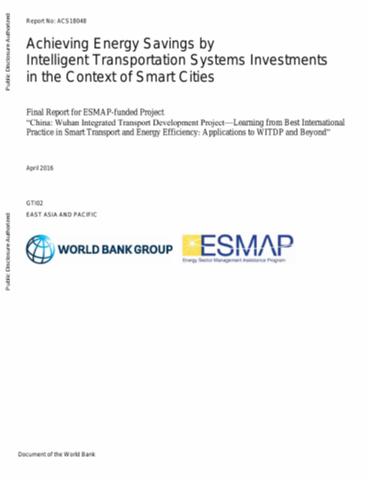Achieving Energy Savings by Intelligent Transportation Systems Investments in the Context of Smart Cities
Faced with the challenge of providing adequate transport services with limited resources, cities have, for several decades, been investing in Intelligent Transportation Systems (ITS). ITS utilize Information and Communications Technology (ICT) to make more efficient use of existing transport infrastructure with the aim of improving transport services and reducing congestion, accidents, and air pollution.




